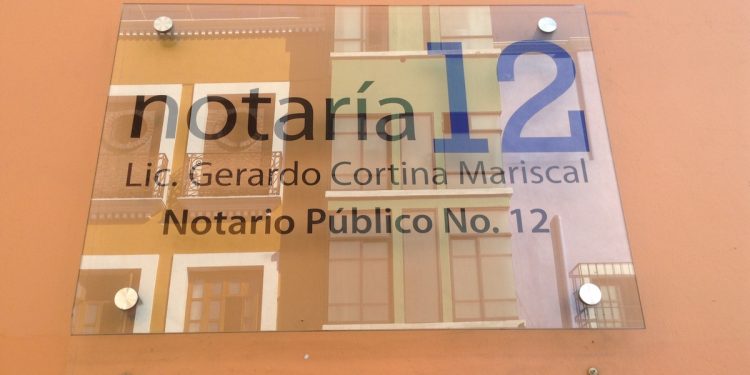Buying a property “off-plan” is the investment in real estate which has not yet been built, or is partially built and under construction.
This article describes the “off-plan” property market in Mexico and some key considerations potential buyers ought to keep in mind before agreeing to buy a home in this way.
“Off-plan” properties offered by developers
Most “off-plan” property sales are offered by developers at the early stages of the project before construction begins, and/or during stages of the project’s physical construction.
Property developers like off-plan sales as it helps their cashflow and the project’s costs can be at least partly allayed before any ground is broken, or as construction begins.
Off-plan projects also help developers to gauge the level of interest for the project in the market and the price levels which buyers are prepared to pay for properties being offered as part of the prospectus.
Discounts and incentives versus off-plan risk
There is an additional element of risk with off-plan purchases that does not exist when buying a pre-built home, and in return for assuming the additional risks off-plan investors (buyers) are enticed with a number of incentives.
The most common incentives offered to buyers are:
- a discount on the advertised “market value” sales price,
- a custom choice of decorations and furnishings, and
- the opportunity to pick from the ‘best available lots’ within the development complex.
Off-plan investments have become more popular as property buyers have become more affable towards investment risks of various types in return for a higher potential reward.
The most sought-after element of off-plan purchases is a discount in relation to the advertised market price, offering the potential of a bigger capital gain from the outset. In some cases, buyers may try to quickly sell the property (called ‘flipping’) when construction is completed if the market is buoyant and buyers are willing to pay a premium when they see the completed project.
Securing a ‘good lot’ (that usually means a decent garden space and/or view) is also attractive to off-plan buyers as the location of the lot within a complex or the view offered by a particular unit on the development can add value and make it easier to rent out, and eventually sell.
Turning a profit in a rising market can be straightforward with off-plan investing; however, care must be taken to gauge market conditions and you must have an excellent understanding of true market values in the locality where you are buying in order to negotiate the right level of discount for the additional risk you are assuming as an integral part of the contract.
If you are buying off-plan you should negotiate a level of price discount that reflects the additional risk that you are assuming as part of the investment. The discount should be based on your own impartial assessment of the estimated value of the property when it is fully completed and delivered.
If you cannot see sufficient reward for the risk you are buying into, be prepared to walk away if you cannot negotiate an appropriate deal from the developer.
The process of buying “off-plan” in Mexico
The process of buying “off-plan” starts with the signing of a contract and with it, your agreement to buy a certain property based on an architect’s plan (a scale model might also be shown) using a defined set of staged payments.
In some cases, construction might have started already, and you will be able to visit the building site. The final payment stage is usually held back until you are fully satisfied with the delivery of the property and facilities you expected under the terms of the contract.
Potential buyers should undertake due diligence before signing any contacts, and extend caution if a developer insists on being paid a substantial sum (as a percentage of the total sales price) in any of the staged payments.
Key considerations for buying “off-plan” in Mexico
There are several important considerations to reflect upon when you approach a property investment in Mexico and additional matters to consider when buying a property “off-plan.”
Check the developer
Check out the developer. What other projects have they worked on? What projects are they working on now, other than this one? When were their projects scheduled for completion and when did they complete? What is the local reputation of this firm? What are previous customers’ experiences dealing with the developer? Don’t be afraid to ask for references, and follow-up with those references.
Don’t take prominent or extensive advertisement placements in magazines and newspapers, or the presence of a modern website and social media following as proof of establishment or reliability.
Most “off plan” sales are offered before ground is broken, but some projects might already be under construction when you are offered a unit for sale. You should not assume that because construction has begun that the project will be completed.
Ask locally and do your research. Don’t be afraid to ask incisive questions that put the developer on the spot about their reputation, track record, and anticipated completion dates for the project they are inviting you to invest in.
Key points about buying “off-plan”
Here are some additional pointers to consider when contemplating a purchase of property “off-plan” in Mexico:
Understand the risk: remember that when you buy off-plan you are taking commercial risks on the property development and the developer, as well as the wider market demand for property.
Due diligence: check the developer’s credentials, permits, and licenses; a local Notary Public will be able to ascertain the current legal state of a property development (you will need to hire their services at your own expense).
Don’t sign a contract you don’t understand: get a competent professional to review the contract and explain to you what is being agreed. It will probably be written Spanish and you might need an interpreter. Any contracts presented to you in English will only have legal force in their original Spanish versions—don’t rely on the seller’s translation if they offer one.
If the development is cancelled: the contract ought to be specific about what happens if the development is cancelled or left partially constructed and incomplete—and what happens to the staged payments you have already made. What are the realistic prospects of getting a refund if things go awry? This is one of the key risks of buying “off-plan.”
If you need to withdraw: the contract ought to specify what happens in the event that you cannot complete the staged payments or if you need to withdraw from the contract due to unforeseen circumstances in your own personal situation.
Understand the risk you take in exchange for the incentives
Remember that you are handing over cash for something that only exists in concept, or is partly constructed, and the money you are handing over is real.
When you buy a property off-plan, there is no ‘real’ in the ‘estate’ until the building is completed and you take physical possession of the property. Up to that point, what you are entering into a contractual arrangement wherein you agree to pay money in instalments and the developer agrees to deliver a completed property to you at some future time.
When considering “off-plan” investments, it’s prudent to undertake extensive research and be knowledgeable about the developer and the local market.
Cross-check the development plans
It sounds obvious to say, ‘cross-check the plans,’ but some people really do buy “off-plan” on the face value of the marketing brochures, or pretty-looking model mock-ups on display at the sales office, or because they can see some construction taking place already and assume everything is in good order. It may work out fine, but not checking the plans significantly increases the risk of your investment.
When you are buying a pre-built property, a good Notary Public will check the plans and permits carefully and tell you about any legal problems that may be present with them before your complete the transfer.
Before you buy off-plan, you should consider paying for legal services to undertake the same checks as you would make with a pre-built property. In all cases, the developer’s permits and licenses should be verified and your legal counsel ought also to verify that the transaction can lead to proper transfer of legal title.
Some plans never get approval from local authorities, some plans and construction projects come up against a plethora of other complications —too numerous to mention here— but suffice to say that an off-plan contract is just that: a plan, a proposal that is not yet realized—and you need to understand that when you sign the contract and begin to make your payments.
Purchase price and total cost of ownership
Buying any real estate entails more than just the price of the property; ‘closing costs’ (legal and professional fees) and any associated taxes also need to be considered, even when you buy off-plan.
If the property you are buying off-plan is part of a condominium building or a gated community of some type —and most off-plan offers tend to be one of these— there will be monthly management fees (homeowner fees) to pay in addition to any other costs of ongoing ownership.
Find out what the management charges are going to be and remember that these can (and usually always do) rise year-on-year. Check the contract and its covenants carefully and hire a qualified and experienced professional to check it and explain the conditions and the obligations that you are subscribing to when you sign the off-plan contract and eventually take delivery of the property.
Further insight about property transactions in Mexico
Closing costs and taxes for buying property in Mexico
Learn more about property in Mexico
Mexperience offers detailed insights about property in Mexico for buyers, owners, renters, and sellers.
- Latest articles and insights about real estate in Mexico
- Working with a realty agent in Mexico
- Insuring your Mexican home
- Enjoying your home and home life in Mexico
The information published in this article is provided for general information in good faith and is not intended as personal, legal, financial or investment advice.
Mexico in your inbox
Our free newsletter about Mexico brings you a monthly round-up of recently published stories and opportunities, as well as gems from our archives.








